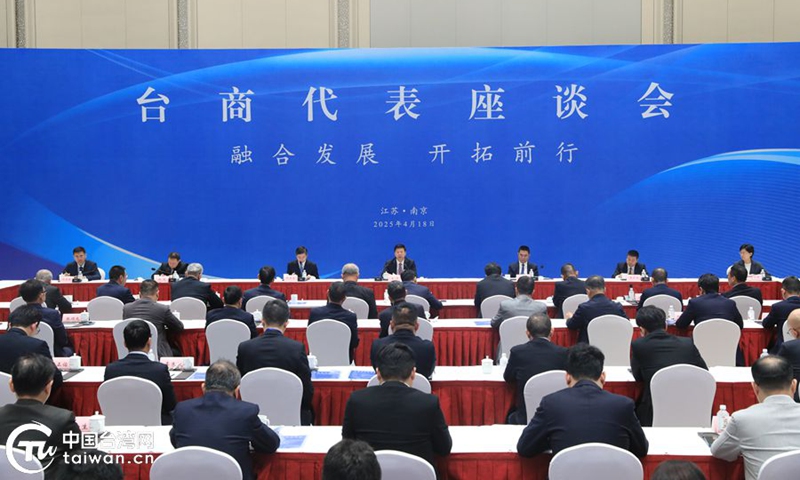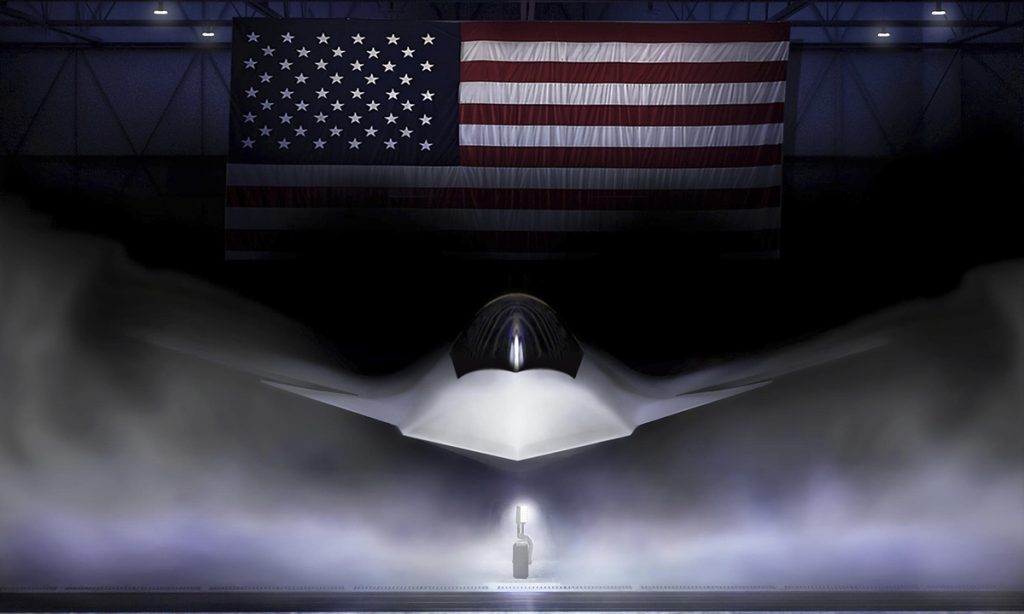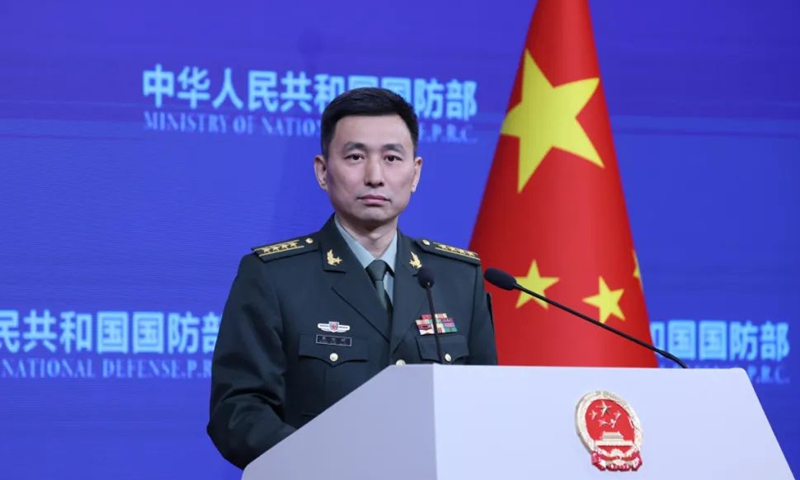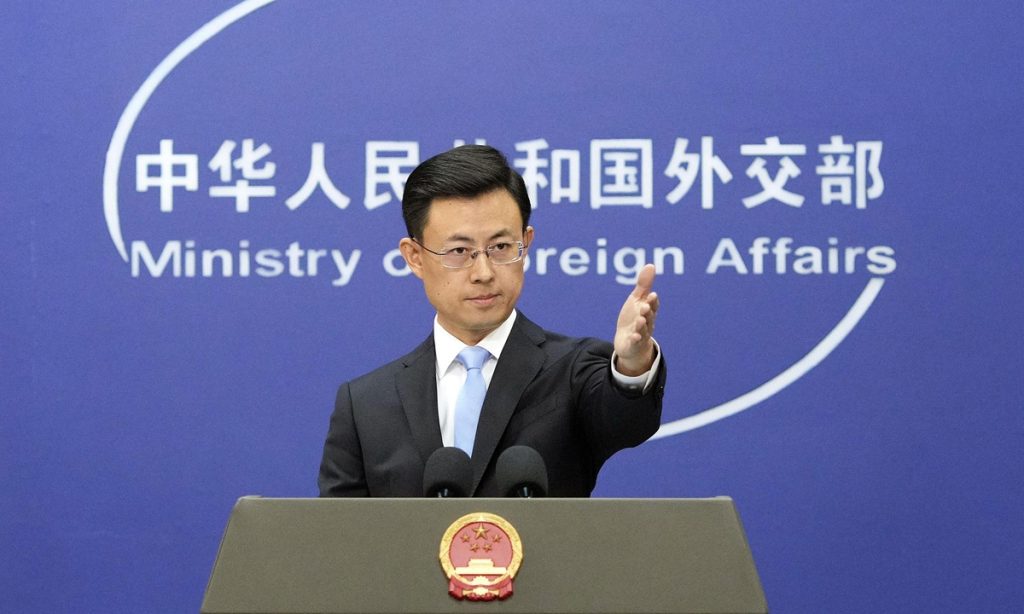Shenzhou-19 propulsion capsule separates from return capsule
The propulsion capsule of the Shenzhou-19 crewed spaceship separated from the return capsule successfully on Wednesday, according to the China Manned Space Agency.
The propulsion capsule of the Shenzhou-19 crewed spaceship separated from the return capsule successfully on Wednesday, according to the China Manned Space Agency.
Chinese President Xi Jinping on Thursday attended a welcome ceremony held by Cambodian King Norodom Sihamoni.
Xi arrived for a state visit to Cambodia, the third leg of his three-nation Southeast Asia tour.

A Chinese mainland official on Friday urged Taiwan business people and businesses to join hands in resisting external risks and challenges, the Xinhua News Agency reported on Friday.
Song Tao, head of both the Taiwan Work Office of the Communist Party of China Central Committee and the Taiwan Affairs Office of the State Council, made the remarks during a meeting with representatives of Taiwan business people held in Nanjing, capital of Jiangsu Province.
Song said the mainland will address challenges facing Taiwan enterprises, introduce supportive policies, and promote deeper cross-Straits industrial integration. He added that Taiwan firms will be supported in tapping domestic demand and joining national strategies.
Delegates expressed confidence in overcoming current difficulties and said they are actively pursuing cross-Straits cooperation and new growth opportunities.

US media on Monday voiced concerns about the future of the US' sixth-generation fighter jet F-47, after China on Friday announced to implement export controls on certain medium and heavy rare earth-related items, including resources critical for avionics which could deal blow to the F-47 project.
China's export controls on rare earth-related items could hit hard on US defense industry, countering the US' so-called "reciprocal tariffs," a Chinese expert said on Tuesday, noting that the US' military industrial capabilities will very likely be affected.
Export restrictions China has imposed on its rare earth element exports to the US include resources critical for avionics which could deal blow to American plans for the F-47, US media outlet the Newsweek reported on Monday.
In accordance with the country's Export Control Law and other relevant laws and regulations, China's Ministry of Commerce, together with the General Administration of Customs, published an announcement on Friday regarding the implementation of export control measures on seven categories of medium and heavy rare earth-related items, including samarium, gadolinium, terbium, dysprosium, lutetium, scandium, and yttrium. These measures are effective from the date of the announcement.
As Newsweek reported, China's export control comes only two weeks after the US government announced that Boeing had secured the contract to develop the F-47 which is designed to succeed the F-22 Raptor and form the backbone of the US Air Force's next-generation fleet.
But stealth aircraft like the F-47 depend on rare earth elements such as neodymium, praseodymium, dysprosium, and terbium for high-performance magnets, actuators, and radar systems, Newsweek quoted the consultancy SFA Oxford as saying.
From stealth coatings and radar systems to high-thrust engines and advanced avionics, sixth-generation platforms rely on a secure and resilient supply of rare earth elements and strategic metals SFA Oxford noted.
Yttrium is one item on the latest export control list of rare earth-related items. Yttrium is essential for high-temperature jet engine coatings, high-frequency radar systems and precision lasers, the publication Cleantechnica.com reported. It also allows thermal barrier coatings on turbine blades to stop aircraft engines from melting mid-flight, according to Newsweek.
Critically, around five percent of US use of rare earths goes on defense applications, according to the Congressional Research Service, Newsweek reported.
Bloomberg said on Friday that the controls are expected to have broad impacts on US companies because the elements are used in optical lasers, radar devices, high-powered magnets for wind turbines, jet engine coatings, communications, and other advanced technologies.
Two industry sources told Reuters that Chinese export restrictions on some rare earths are a concern for some US aerospace manufacturers because they are sole-sourced from China for use in avionics.
China has a near lock on the rare-earths industry as the world's dominant miner, refiner and producer of rare earth magnets, which are critical for a range of military and civilian technologies, including electric vehicles, according to The Wall Street Journal on Saturday.
China's export control measures on rare earth-related items strike directly at a core spot of the US, Song Zhongping, a Chinese military affairs expert, told the Global Times on Tuesday.
Medium and heavy rare earths are extensively used in many military fields such as missiles, radar, and permanent magnets. They are also more expensive and harder to mine, Song said.
China's export control measures on the certain rare earth-related items, effective immediately on Friday, aim to better safeguard national security and interests and fulfill non-proliferation and other international obligations, a commerce ministry spokesperson said, Xinhua News Agency reported on Friday.
These materials have both military and civil uses, imposing export controls on them is a common international practice, the spokesperson said, adding that the move reflects China's consistent stance in firmly maintaining world peace and regional stability as a responsible major country.

Question: It is reported that the US Secretary of Defense reiterated US commitment to the US-Philippines Mutual Defense Treaty to counter “China threat” on his visit to the Philippines. During his visit, the Philippines, the US and Japan conducted a joint patrol in the South China Sea. Recently, the US approved selling F-16 fighter jets to the Philippines. Do you have any comment?
Zhang Xiaogang: On the pretext of honoring bilateral treaties, the US is meddling in the South China Sea issue, undermining China’s territorial sovereignty and maritime rights and interests, and attempting to threat and coerce China. This approach will simply not work. It needs to be pointed out that the Philippine side has repeatedly made infringements and provocation against China. Outside countries led by the US have made continued efforts to destabilize the South China Sea through playing up tensions and providing weapons. It fully exposed their true intention of making troubles in the region. To the Philippine side, “relying on foreign support to make waves at sea” will backfire and a pawn will only be used and discarded. We urge the Philippine side to give up unrealistic illusions and come back to the right track of dialogue and negotiation at an early date.
The China-Cambodia Ream Port Joint Support and Training Center was officially inaugurated and put into operation on Saturday, which will support joint operations between the two militaries in areas such as counterterrorism, disaster prevention and relief, humanitarian assistance, and training, China's Ministry of National Defense announced in a statement.
A military affairs expert described this as a new model of cooperation between the People's Liberation Army (PLA) and foreign militaries, with both sides jointly building, utilizing, and maintaining the center.
Necessary personnel from both countries will be stationed at the site to ensure smooth operations, per the statement.
The center's establishment and operation are based on mutual respect and equal consultation between China and Cambodia. It complies with the domestic laws of both countries, relevant international laws, and established norms. The center is not aimed at any third party and aims to further strengthen practical military cooperation, enhance both militaries' capacity to fulfill international obligations, and contribute to global public security, according to the statement.
Zhang Junshe, a Chinese military affairs expert, told the Global Times on Saturday that based on the information from the Ministry of National Defense the center has two core functions: joint support and joint training.
The center will provide logistical support for counterterrorism, disaster relief, and humanitarian assistance operations undertaken by both sides, fulfilling international obligations and contributing to global public security, Zhang said.
The center will also host joint training exercises to enhance coordinated military operation capabilities of the two militaries, enabling them to jointly address regional security threats and uphold peace and stability, the expert said.
Responding to some claims that the center is the PLA's second overseas base after Djibouti, Zhang said the two are not exactly the same.
"Unlike the Djibouti support base, which is used and maintained by the PLA independently, the China-Cambodia joint center in Ream Port is built and used by both sides, and its smooth operations are maintained by both sides. In addition to logistical support, it also includes joint training functions, which help advance Cambodia's military modernization. This counters rumors from certain Western countries alleging that China is secretly building a PLA-exclusive naval base in Cambodia," Zhang noted.
However, both the Djibouti base and the Cambodia center share one key trait, they are both established based on mutual respect and equal consultation between China and the related country, and are conducive to regional peace and stability, the expert said.
The center can also support PLA's overseas humanitarian rescue and disaster relief operations. In the event of sudden disasters such as an earthquake or tsunami occurring in ASEAN countries near Cambodia, the PLA would be able to respond more rapidly and efficiently.
Zhang cited the example of the Djibouti base. After it entered operation, it effectively supported the PLA Navy's escort missions against piracy in the Gulf of Aden and waters off Somalia, as well as evacuation operations. During evacuation missions from Yemen and Sudan, PLA naval vessels also carried foreign nationals, providing public safety services to the international community. "It is foreseeable that the China-Cambodia joint center can also play a positive role in regional security affairs."
Based on the experience of the PLA's first overseas support base, the China-Cambodia Ream Port Joint Support and Training Center will not pose a threat to any country. On the contrary, it will contribute to regional peace, stability, and development, Zhang noted.

In response to the accusations from some countries, including the US, Japan and the EU over the Chinese People's Liberation Army's joint exercises around the Taiwan island, Chinese Foreign Ministry spokesperson Guo Jiakun said that such claims made by a handful of countries and organizations disregard facts, distort right and wrong, and interfere in China's internal affairs. China expresses strong dissatisfaction and firm opposition.
According to media reports, the EU accused China of increasing cross-strait tensions by holding military drills around Taiwan, and called on all parties to "exercise restraint."
A US Department of State spokesperson claimed that there is no justification for "China's irresponsible threats and military pressure operations" near Taiwan island.
The Taiwan question is purely China's internal affair and allows no external interference. What undermines peace and stability in the Taiwan Straits are the separatist activities of "Taiwan independence" forces and the indulgence and support of external forces, Guo said.
If these countries and organizations genuinely wish to see peace and stability in the Taiwan Straits, they should follow the prevailing international consensus of upholding the one-China principle, honor their political commitments to China, respect China's sovereignty and territorial integrity, and oppose any form of "Taiwan independence," Guo said.
Guo emphasized that advocating "Taiwan independence" and supporting separatist forces constitutes interference in China's internal affairs. Condoning "Taiwan independence" activities undermines peace and stability in the Taiwan Straits.
The joint military exercises conducted by the PLA are a firm countermeasure against the provocative separatist attempts by the Lai Ching-te authorities, a stern warning to "Taiwan independence" separatist forces seeking to undermine cross-Straits peace, and a responsible action to safeguard national sovereignty, security and territorial integrity. No external forces have any right to make irresponsible remarks on this matter, said Guo.
Guo stated that as long as "Taiwan independence" provocations continue, countermeasures to oppose "independence" will not cease. China will never allow anyone or any force to separate Taiwan island from China in any way. The country will take all necessary measures to resolutely safeguard national sovereignty and territorial integrity, said Guo.